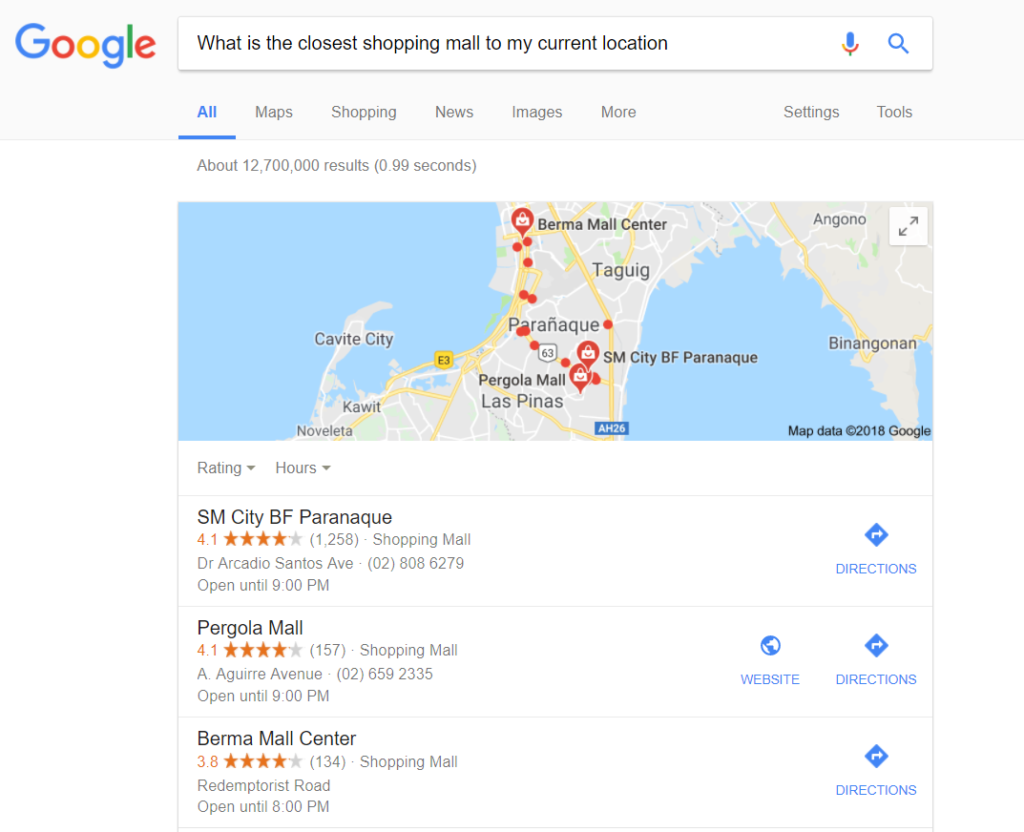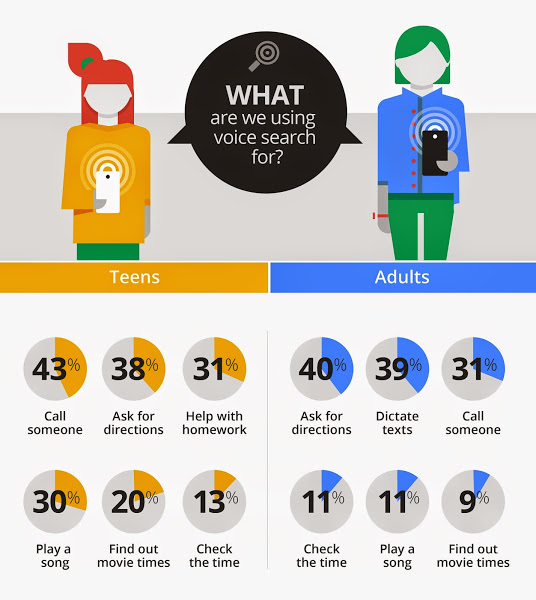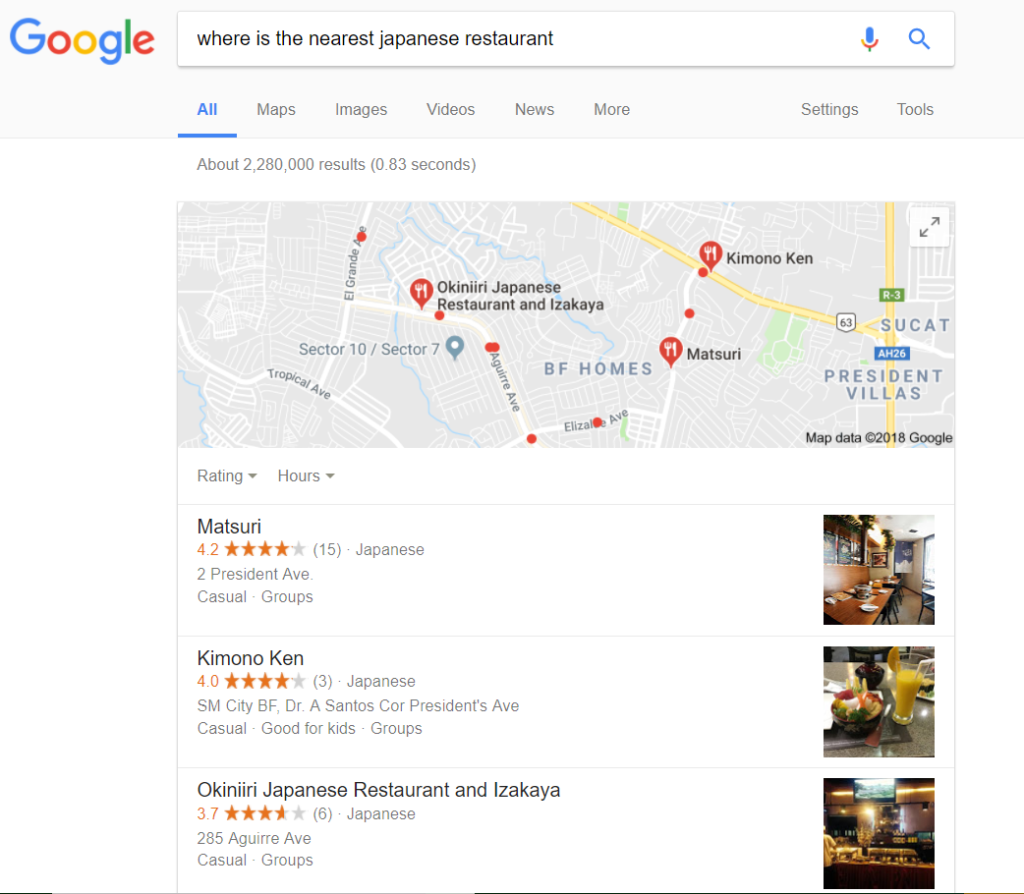How Voice Search Can Impact Your SEO for 2019
Search engine technology has seen quite the evolution over the past few years, with updates from companies like Google creating better search engines that help users get the best results. This series of updates that Google has done over the past few years not only improves search results but also help accommodate and adopt new technologies such as mobile sites and voice search.
Voice search has taken a good percentage of all total searches across the world. This is thanks in part due to AI assistants like Apple’s Siri, Amazon’s Alexa, Google Assistant, and Bixby, who help users with their various inquiries. This convenience has placed voice search in a position to become a search standard in the near future.
How Voice Search Works
Performing a voice search on Google is just as simple and quick as doing a typed search. All you have to do is to simply click the microphone icon on the search bar, and then you’re set.
Once you have clicked on the icon, you are given a few seconds to speak and give your inquiry. It is best to make sure that your voice would be heard clearly through your microphone to get the most accurate results. For this case, my inquiry was “What is SEO Hacker”.
Upon hearing my inquiry, Google got what I was looking for, and answered my question. When it comes to short inquiries, voice search is quite effective in generating good results. It is worth noting that voice searches work best when it is in question form, as a high number of users use it to search for things such as the best food places, notable personalities, and other important locations.
Google Hummingbird Update
One of the updates that changed Google for the long-term is the Hummingbird update. This update emphasized semantic search, which aims to create more accurate results through understanding the context and the intent of the user’s search inquiry. This shifted the focus to meaningful search queries, which mean, searches that are structured in sentences and phrases.
Take this query, for example. When I asked Google about “What is the closest shopping mall to my current location”, it immediately responded by giving me a list of the nearest shopping malls. Other search engines tend to read only the keywords of your search term, like “shopping mall”, but Google takes into account the whole statement, which helps it “learn” language better.
How to Optimize for Voice Search
With voice searches becoming more common as time passes, optimizing for voice search would help gain more search traffic, and help users who would like to avail of your products and services. Here are some effective methods to optimize your website for voice search.
Identify the purpose of the search
One of the first things that you should know first is what are people using voice search for. It is best to look for statistical data to see the numbers, and know the purpose of these searches. Here is a helpful infographic which shows where voice searches are used.
Based on this infographic, both teens and adults commonly use voice search to ask for directions, call someone, and check out movie times. For those with businesses, one of the most important strategies that need to be done would be to have your business listed on Google My Business, as local results tend to come up the most in location-based voice searches. For example, when I came looking for the nearest Japanese restaurant, businesses that have Google My Business are the ones that popped out first.
Use Question Phrases
When it comes to search terms for voice, it is best to create search terms that users would most likely utter. With that in mind, keeping them short and simple is the best way to go. Question phrases are the most common search terms on voice, which is why using where, what, how, when, who, why, and how questions are very much preferred. Going back to the Japanese restaurant example, “where” questions are the best for most businesses, while “how” and “why” questions provide users with helpful information like guides and tutorials.
It is also beneficial to create a question and answer format on pages targeted for voice searches, as Google prefers pages that already would be able to answer the question of the user and feature them on top of the results pages. Addressing a need or answering a question is a great way to generate traffic on both web-based and voice search queries, and having content that will help respond to that need will be able to boost your traffic by a considerable amount.
Mobile and User-Friendliness
With user-friendliness always being a priority, and with mobile users dominating searches, having a responsive design website definitely helps. Mobile users want a site that is accessible and easy to navigate on a device, along with having a fast load speed. These are important factors in the bounce rate and helps users last longer on your website.
How Voice Search Impacts SEO
With voice garnering a good chunk of total internet searches, it is imperative to optimize your website for voice search. This helps increase internet traffic for your existing keywords, and even establish new keywords that you can use to help users find your business. In a fast and results-based world, voice search will continue to be part of SEO’s future, and we may see a time where it can surpass traditionally written searches. With AI Assistant and semantic search paving the way, it is best to make sure you have web pages optimized for voice search.
Here are other ways that it can impact your SEO:
Optimize Local SEO
Local SEO has become more widespread recently, with a rapidly growing number of businesses establishing their own online platforms and become a part of the increasingly competitive online market. When it comes to common voice search queries, a wide number of users tend to look for businesses and establishments near their area. Optimizing your business for voice search helps give you an edge over the local competition, especially with proper geotagging, exact and question-based queries, and an updated Google My Business.
Boost Your Mobile Search Presence
Mobile SEO is another part of SEO that has seen huge strides in growth, with Google even launching some of their updates on mobile first before being present on the desktop. This makes appearing on mobile SERPs crucial in your strategy, especially with mobile ranking factors being expanded to include page loading speed. With more people using voice search on mobile, making use of AI assistants like Google Assistant and Siri, optimizing your website’s mobile experience would help make a huge difference. Featured snippets is another area that you have to optimize, as the likes of Google Assistant prefer SERPs that come from featured snippets, as it provides users with quality information that can be the deciding factor for users accessing a website, or even make a purchase.
Key Takeaway
Voice search looks to be a part of the future of SEO, and it is best to come prepared. With some of these effective steps, you would be able to utilize voice search to your advantage.
If you have inquiries about voice search and SEO in general, leave a comment below and let’s talk.







